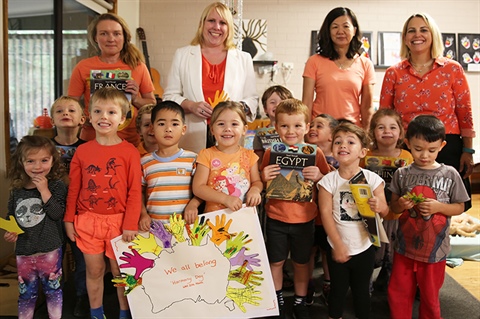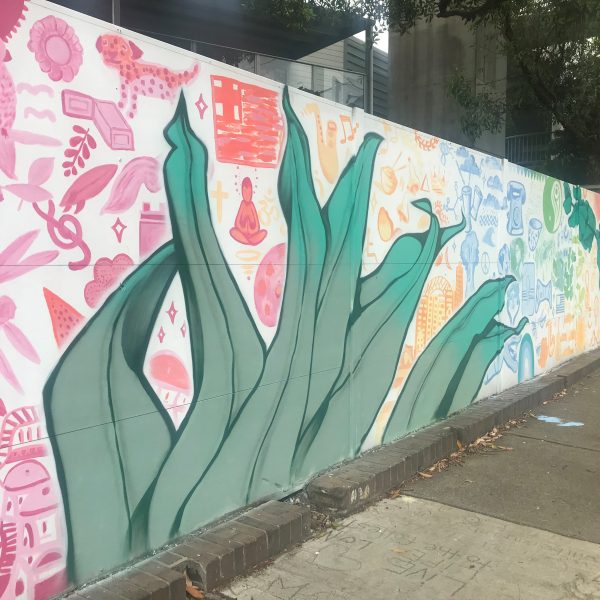Harmony Week is here – practical suggestions on how to implement key ideas

The Department of Home Affairs leads national celebrations for Harmony Week to recognise diversity and inclusion activities that take place during the entire week. Harmony Week is celebrated during the week (Monday to Sunday) that includes 21 March, which is the United Nations International Day for the Elimination of Racial Discrimination.
Since 1999, more than 80,000 Harmony Week events have been held in childcare centres, schools, community groups, churches, businesses and federal, state and local government agencies across Australia emphasising the importance of inclusiveness, respect and belonging for all Australians, regardless of cultural or linguistic background, united by a set of core Australian values.
In early childhood settings the Department has made the following suggestions of how services may wish to mark the occasion.
Discussion points for group time
- What is diversity? What are some of the ways that people can be different from each other?
- All the same: What things make us the same?
- What is Harmony Week?
- What does harmony mean? What are some examples of harmony in nature/in the world?
- Family diversity: Who is in your family? Talk about how families are the same and different.
- Diverse stories: Read and listen to stories depicting a variety of people, cultures and lifestyles.
- My groups: Talk about all the groups to which you belong eg team, family, friendship group, hobby. What things help you to feel you belong?
Discussion dice, about families, celebrations and international food can help to facilitate conversation with older preschoolers.
Exploring language
- Say “good morning” and “good afternoon” in a different language each day
- Learn the origin of people’s names
Music and movement
- Sing songs or listen to music from different cultures and countries, and paint what you hear with different colours and brushstrokes.
- Diverse dancing: invite community members to share cultural dances
- demonstrate a dance they have learned.
- Make a collage about the diversity of your class. Be open to the many different ways of doing this.
- Self portrait: Mix paint to match, as closely as possible, the colour of your skin, hair and eyes. Paint a picture of your face.
- Multilingual songs: Find a traditional song that is sung in a range of languages eg ‘Twinkle Twinkle Little Star’. Learn the song in another language.
A variety of resources are available to help children explore diversity, including:
- Heads up: Introduces students to the diversity of headwear and the purpose and significance of these in a multicultural society.
- Musical moods: Allows students to respond to music from different cultures through abstract line drawing.
- Colour and create figures
STEM and diversity
- Diverse life: How are animals and plants the same? How are they different?
- Herb garden: Establish a class herb garden. What type of cuisine is each herb associated with? Use the herbs to prepare a dish eg herb bread.
- Animals: What animals have you seen in Australia? How many are native to Australia? Where did the others come from?
- Plants: Investigate the trees and plants in your learning environment. How many are native to Australia? Where did the others come from?
- Diverse materials: Use a variety of objects for counting and other maths activities that reflect the diversity of everyone in the class.
- Bilingual counting: Learn to count to 10 in another language.
- Building shapes: Look at some buildings in your community that have been influenced by other cultures. What shapes can you see in them?
Health and nutrition
- Ask the children what they had for dinner, and investigate the origins of their dishes
- Use each letter of the alphabet to think of a food, and talk about where the foods come from
- Global games: Investigate the origins of games and sports children enjoy playing. Play games from different cultures.
For more ideas about how to acknowledge Harmony Week in ECEC please see here. Image source Hills Shire Council.
Popular

Quality
Practice
Provider
Research
Workforce
Honouring the quiet magic of early childhood
2025-07-11 09:15:00
by Fiona Alston

Practice
Provider
Quality
Research
Workforce
New activity booklet supports everyday conversations to keep children safe
2025-07-10 09:00:16
by Fiona Alston

Quality
Practice
Provider
Workforce
Reclaiming Joy: Why connection, curiosity and care still matter in early childhood education
2025-07-09 10:00:07
by Fiona Alston












